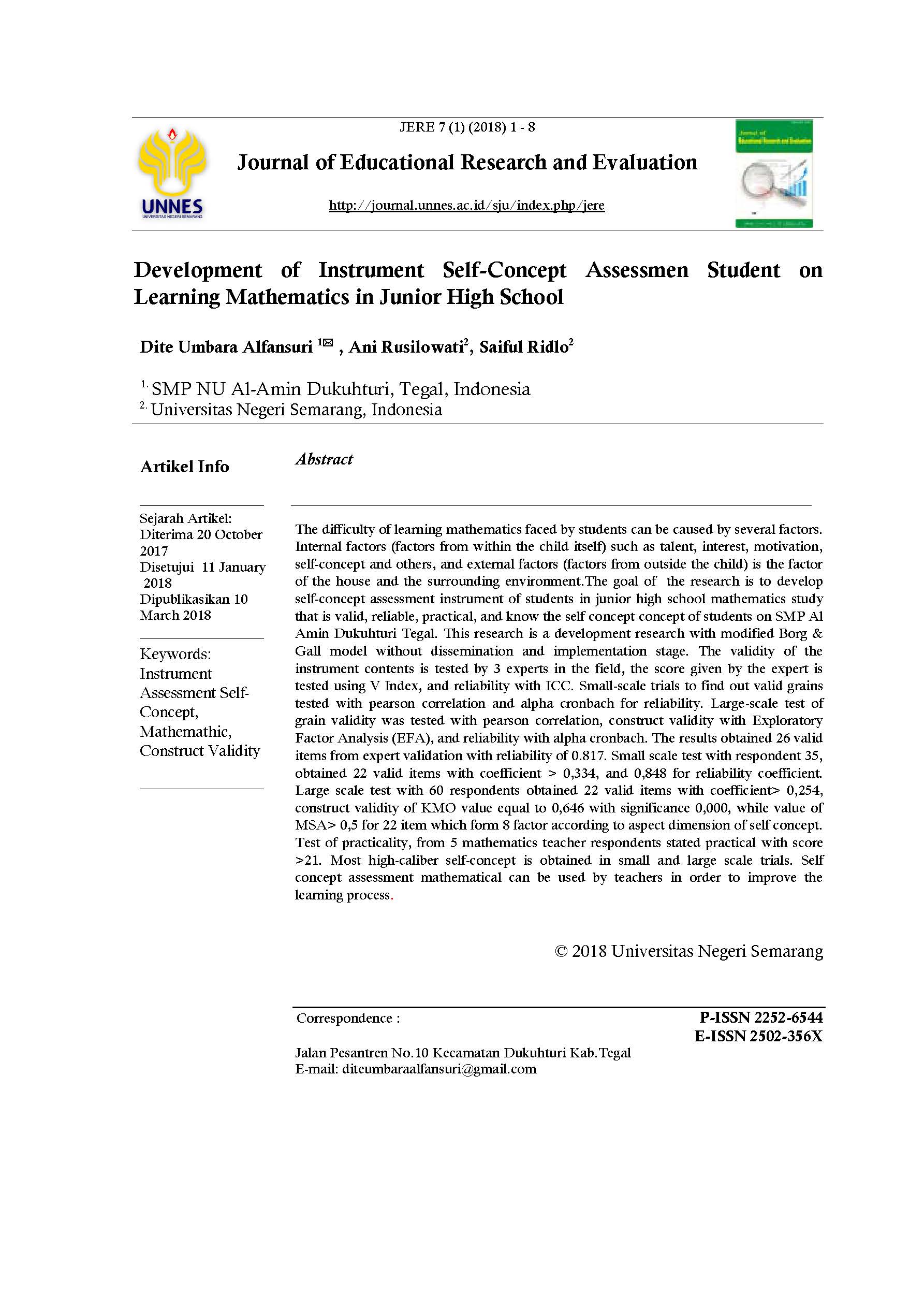Development of Instrument Self-Concept Assessmen Student on Learning Mathematics in Junior High School
##plugins.themes.academic_pro.article.main##
Abstract
The difficulty of learning mathematics faced by students can be caused by several factors. Internal factors (factors from within the child itself) such as talent, interest, motivation, self-concept and others, and external factors (factors from outside the child) is the factor of the house and the surrounding environment.The goal of the research is to develop self-concept assessment instrument of students in junior high school mathematics study that is valid, reliable, practical, and know the self concept concept of students on SMP Al Amin Dukuhturi Tegal. This research is a development research with modified Borg & Gall model without dissemination and implementation stage. The validity of the instrument contents is tested by 3 experts in the field, the score given by the expert is tested using V Index, and reliability with ICC. Small-scale trials to find out valid grains tested with pearson correlation and alpha cronbach for reliability. Large-scale test of grain validity was tested with pearson correlation, construct validity with Exploratory Factor Analysis (EFA), and reliability with alpha cronbach. The results obtained 26 valid items from expert validation with reliability of 0.817. Small scale test with respondent 35, obtained 22 valid items with coefficient > 0,334, and 0,848 for reliability coefficient. Large scale test with 60 respondents obtained 22 valid items with coefficient> 0,254, construct validity of KMO value equal to 0,646 with significance 0,000, while value of MSA> 0,5 for 22 item which form 8 factor according to aspect dimension of self concept. Test of practicality, from 5 mathematics teacher respondents stated practical with score >21. Most high-caliber self-concept is obtained in small and large scale trials. Self concept assessment mathematical can be used by teachers in order to improve the learning process.
